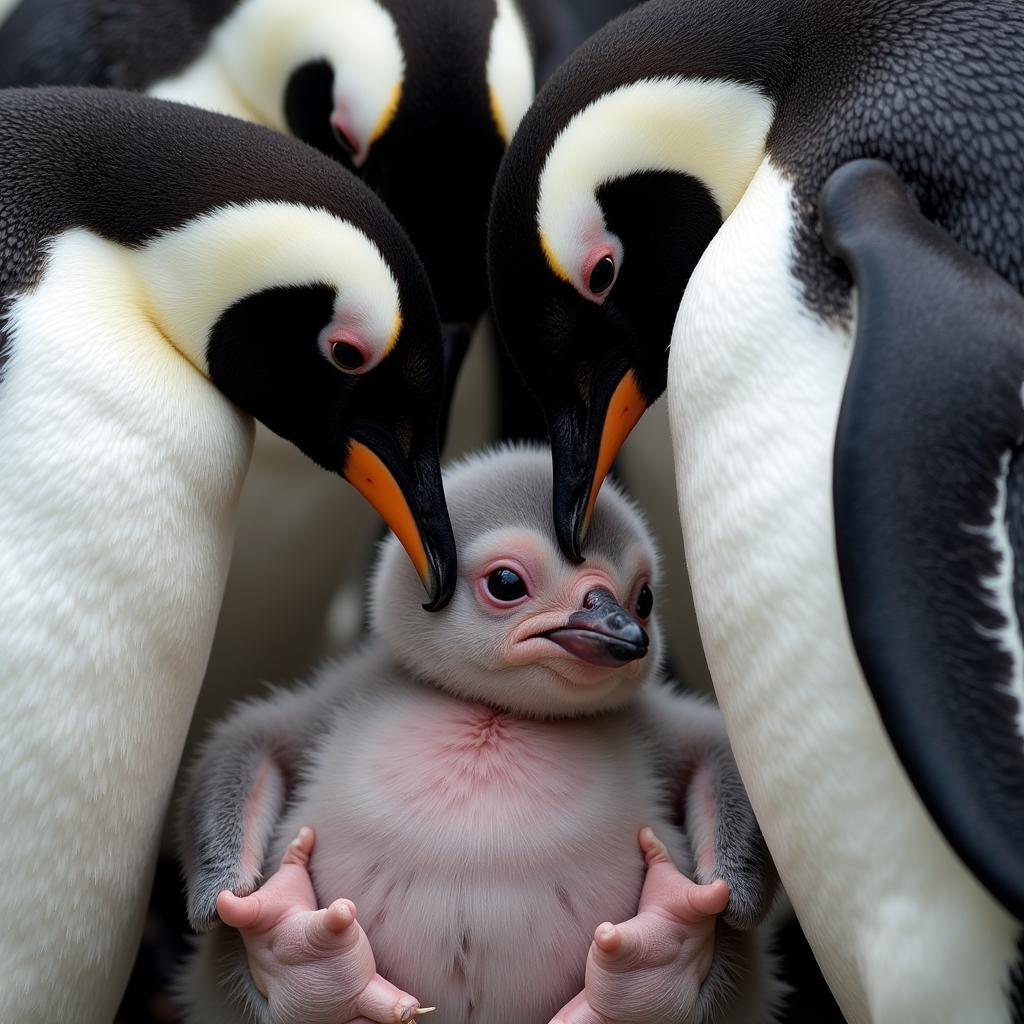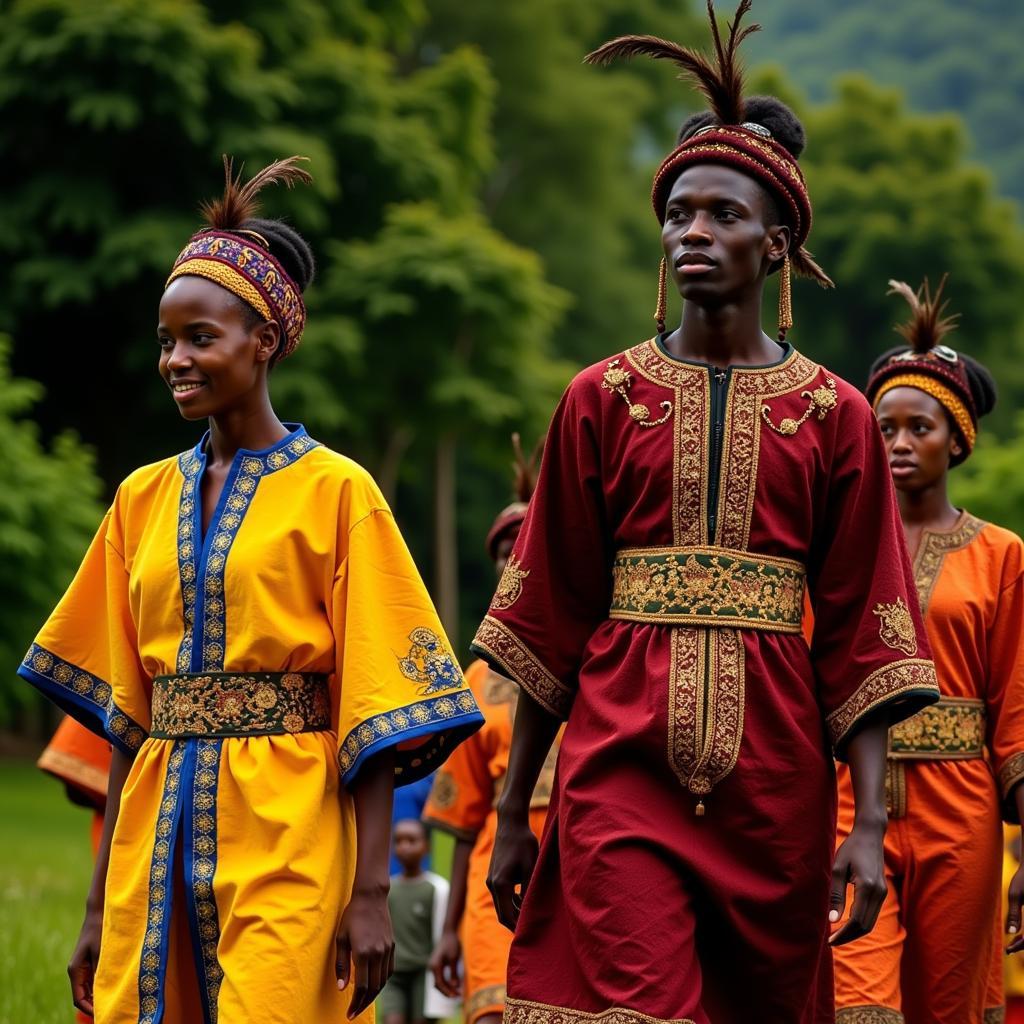African Birds Breeding: A Guide to the Wonders of Avian Reproduction
African Birds Breeding is a fascinating subject, encompassing a vast array of species and behaviours. From the vibrant plumage of courting males to the intricate nest-building skills of various species, avian reproduction in Africa offers a glimpse into the complex web of life on the continent. This article will delve into the intricacies of African bird breeding, exploring various aspects from courtship rituals to nesting habits and the challenges they face in a changing environment. We’ll cover everything from the common weaver bird to the majestic African fish eagle, highlighting the unique adaptations that allow these birds to thrive.
Courtship Rituals: A Symphony of Sights and Sounds
African bird breeding often begins with elaborate courtship displays. These rituals, varying greatly between species, serve to attract mates and establish pair bonds. Many species utilize vibrant plumage and elaborate dances, while others rely on intricate songs and calls. For instance, the male paradise whydah performs an aerial display, showing off its long tail feathers to attract females. Other species, like the African grey parrot, engage in mutual preening and soft vocalizations to strengthen their bond. Understanding these courtship behaviors provides insight into the complex social dynamics of these avian populations. After a successful courtship, the next step is nest building. See our article on african birds breeding tips.
Nest Building: Architectural Marvels of the Avian World
From simple scrapes in the ground to elaborate woven structures, African birds exhibit remarkable diversity in their nest-building techniques. Some species, like the hamerkop, construct massive nests that can weigh over 50kg, while others, such as the African penguin, utilize burrows or crevices for protection. The materials used also vary widely, including twigs, leaves, mud, feathers, and even spider silk. These architectural marvels provide a safe and secure environment for incubating eggs and raising young. Learn more about about african lovebirds breeding.
Breeding Seasons and Environmental Factors
African bird breeding seasons are often tied to environmental factors such as rainfall and food availability. Many species breed during the rainy season when insect populations are abundant, providing a readily available food source for their young. Changes in these environmental patterns, due to climate change, pose a significant threat to breeding success. Droughts can lead to food shortages, impacting chick survival rates, while unpredictable rainfall can disrupt nesting cycles.
How do environmental changes affect African bird breeding?
Environmental changes can significantly impact African bird breeding by disrupting food availability and nesting cycles.
The Challenges of African Birds Breeding
African birds face a variety of challenges during the breeding season, including predation, competition for resources, and habitat loss. Predators, such as snakes, lizards, and raptors, pose a constant threat to eggs and chicks. Competition for nesting sites and food can also be intense, especially in areas with high bird diversity. Furthermore, habitat destruction due to human activities, such as deforestation and agriculture, is a growing concern, reducing the available breeding grounds for many species. You can also read more about the african love birds breeding box.
Dr. Anika Mtwali, an ornithologist specializing in African birdlife, notes, “The intricate breeding behaviors of African birds are a testament to their adaptability and resilience. However, they face increasing pressure from human-induced environmental changes.”
What are the main threats to African bird breeding success?
The main threats to African bird breeding success include predation, competition for resources, habitat loss, and climate change.
Parental Care: From Incubation to Fledging
African bird species exhibit a wide range of parental care strategies. Some species, like the ostrich, share incubation duties between the male and female, while others, such as the Egyptian plover, rely on communal nesting. The length of the incubation period and the time it takes for chicks to fledge varies greatly depending on the species. Once the chicks have fledged, they may remain dependent on their parents for an extended period, learning essential survival skills. More information about the african black masked lovebird can be found here.
 African Penguin Chick with its Parents
African Penguin Chick with its Parents
Professor Kwame Nkruma, a leading expert in African ecology, observes, “The diverse parental care strategies seen in African birds highlight the remarkable evolutionary adaptations that have enabled them to thrive in a variety of environments.”
In conclusion, African birds breeding is a complex and fascinating subject that offers a glimpse into the incredible biodiversity of the continent. From elaborate courtship rituals to intricate nest building and dedicated parental care, these birds demonstrate a remarkable array of adaptations for reproductive success. However, the increasing pressures of environmental change pose significant challenges to their survival. Understanding these challenges is crucial for implementing effective conservation strategies to protect these magnificent creatures for future generations.
FAQ
-
What time of year do most African birds breed? Many African birds breed during the rainy season when food is abundant.
-
What are some of the most common African bird species? Some common species include the weaver bird, the African fish eagle, and the African penguin.
-
How do African birds attract mates? African birds attract mates through a variety of courtship displays, including songs, dances, and elaborate plumage.
-
What are some of the challenges facing African bird populations? Challenges include habitat loss, predation, and climate change.
-
How can I help protect African birds? Supporting conservation organizations and promoting sustainable practices can help protect African bird populations.
-
Where can I find african animals mating videos?
-
What are some good african birds breeding tips?
Need support? Contact us 24/7: Phone: +255768904061, Email: [email protected], or visit us at Mbarali DC Mawindi, Kangaga, Tanzania.


